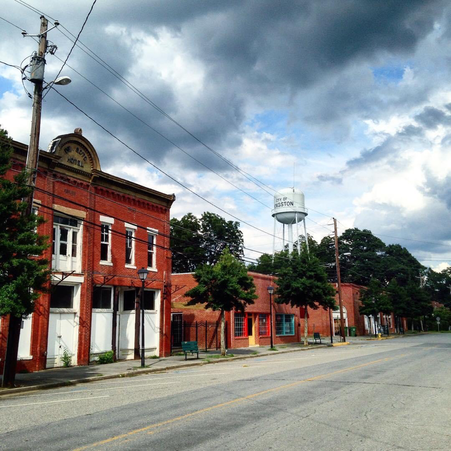 Downtown: Opportunity and Promise Downtown: Opportunity and Promise Sam Burnham, Curator There is probably no documentation of the precise number of small Southern towns with railroad tracks running through them. In the 19th century towns needed a railroad or a river to survive. The trains provided commerce, travel, and a connection to the rest of the world. That’s part of what sustained a small town in western Bartow County. Welcome to Kingston, population ≈ 679. Kingston used to be a bustling place. Back during the war it housed hospitals for both armies. The Andrews Raiders hid out near here to allow scheduled rail traffic to pass during the Great Locomotive Chase. 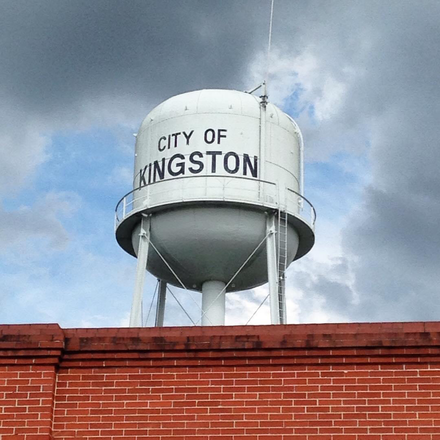 A hotel and several businesses once anchored downtown. The old well house still stands next to the tracks. But the modern water tower overlooks mostly empty storefronts in need of attention. In this part of Georgia towns are divided into two lists: winners and losers. The lists aren’t etched in concrete. They aren’t even written in ink. Towns hop back and forth as the sprawl of metro Atlanta turns quiet villages into boom towns overnight. Outlying towns lose their populations to better opportunities within the sprawl. As the development spreads out like a shockwave, yesterday’s boom town becomes today’s blight as crime and decay set in. People follow the prosperity but it never stays put long. So a place like Kingston, which sits hollow and crumbling, can offer something different. It can be a center of neighborly peace and prosperity or it can be more fodder for the sprawl. Taking the better option could provide housing, employment, and community. This can be a healthily isolated enclave. It can be happy and affordable. It can be great. 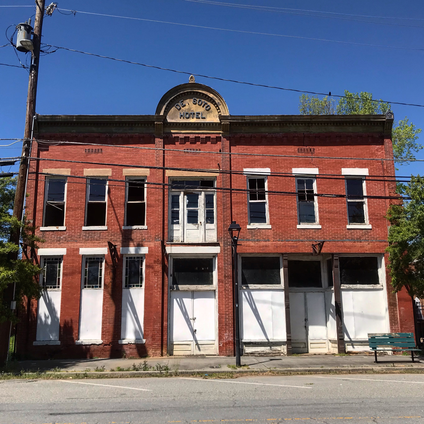 Kingston has a local government. A modern town hall is small but appropriate for a municipality of this size. There are recreational facilities and ample green space. The local architecture is beautiful. There are homes and churches. The town is a short drive from Cartersville, Adairsville, Rome, or the plush amenities of the Barnsley Gardens resort. Right here you’ll find all the foundations of a healthy and prosperous small Southern town. It’s got good bones. In a local cemetery you’ll find a large headstone for Melvina Shields (1844-1938). Ms. Shields was born into slavery and died in the era of Jim Crow. You are probably familiar with her great-great-great granddaughter, Michelle Obama. I’m not writing this one as a greedy profiteer looking to gentrify an ailing town. I’m certainly not trying to make the good people of Kingston feel bad about their community. What I hope to do is shed some light on a good place. Who knows what could happen here? Some good investment with the community in mind could yield profits in the Economy of People, the Economy of Place, and also in the financial marketplace. 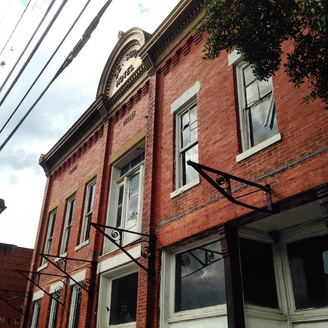 One thing that COVID-19 has caused is the realization that a central in-person office isn’t always a necessity. As workers are freed to work remotely and live where they choose. Places like Kingston can fill a niche. People who want to work for big firms no longer have to live in huge cities. There are now more options. All of this considered, think of the possibilities. Outlets for art, music, or other entertainment. Think about a farmers market supplied from the local area. Think of festivals and celebrations. Think about the chance to fit into the local culture rather than displacing it. So I’m highlighting Kingston in this article but so many others fit into this category. For now, what can be done in Kingston? Do you see it? Can you envision it?
0 Comments
Leave a Reply. |
Sam B.Historian, self-proclaimed gentleman, agrarian-at-heart, & curator extraordinaire Social MediaCategories
All
Archives
November 2022
|
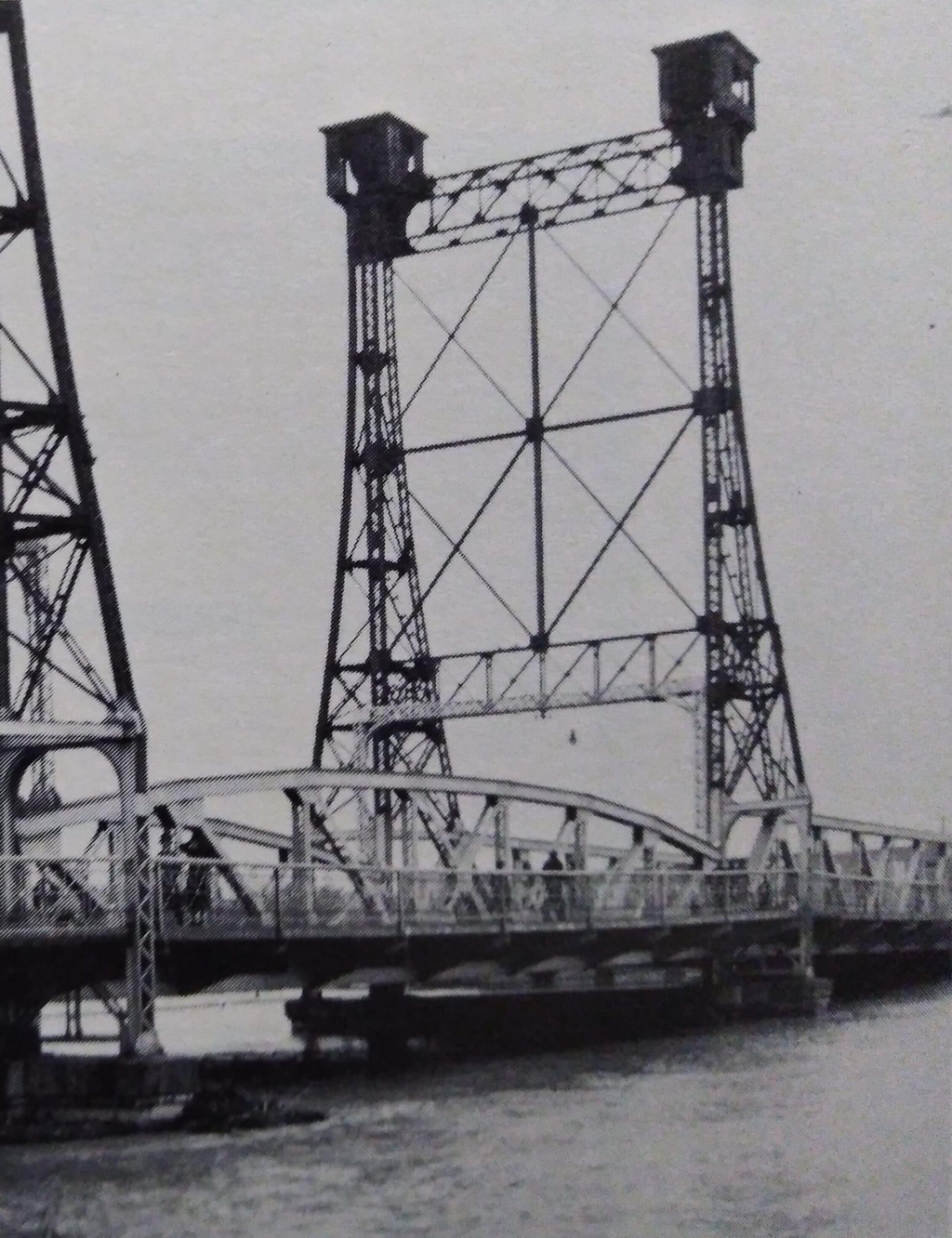
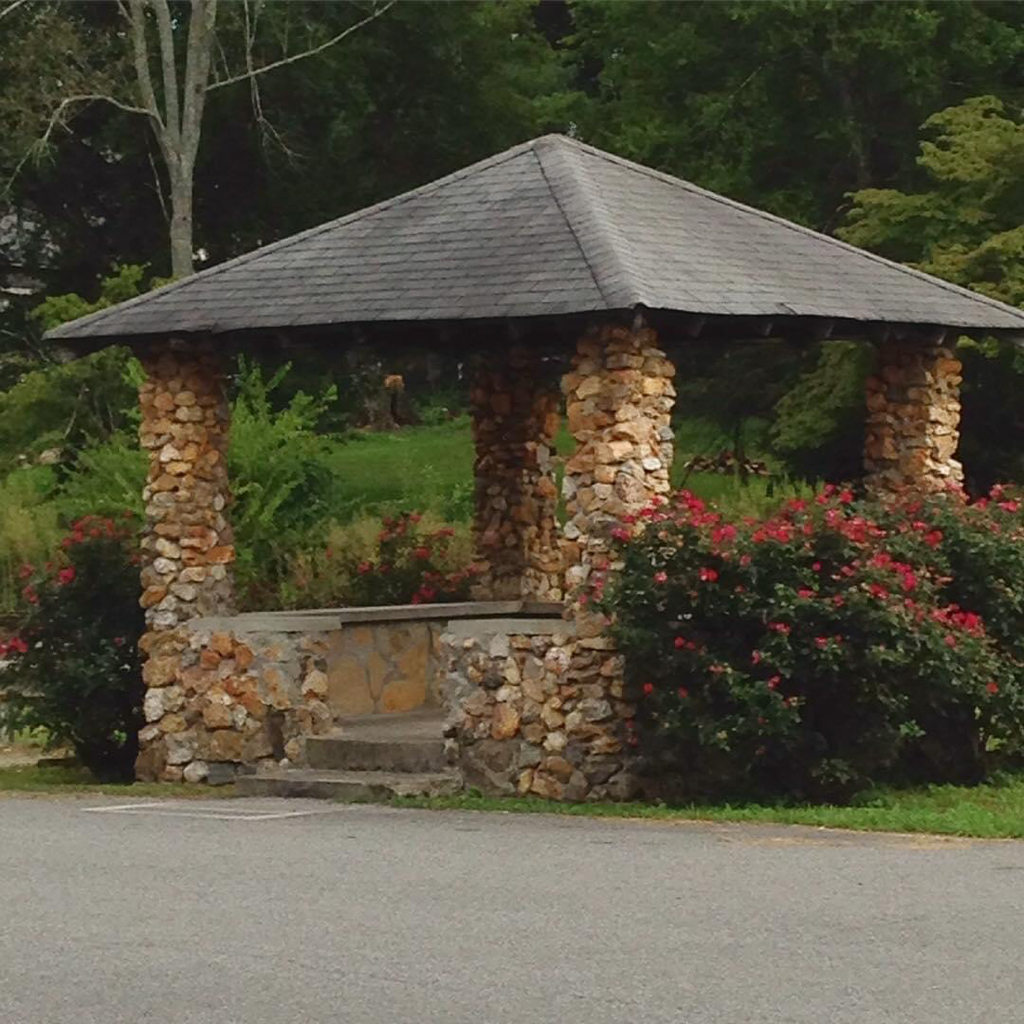
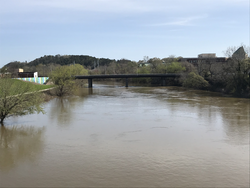




 RSS Feed
RSS Feed
